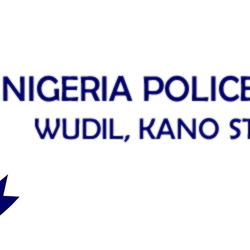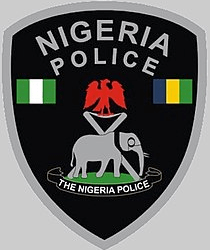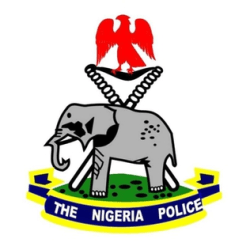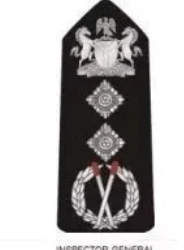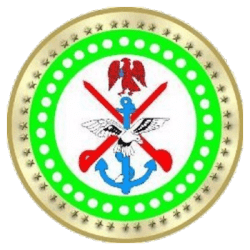• Port Authority Police
• Police Cooperative
• Police Academy Kano
• Marine Police
• Counter Terrorism Squad

PORT AUTHORITY POLICE COMMAND
The Ports Authority Police Command is charged with the responsibility of providing and maintaining security in the Nation Ports. The Command is made up of two Area Commands: Western Ports with its headquarters at Apapa Quays and the Eastern Ports Area Command with its headquarters at Port Harcourt. The Command headquarters is situated at the NPA House, Marina Lagos.
NIGERIAN POLICE COOPERATIVE
The Nigeria Police cooperative was established in 1977 with the aim of helping to improve the welfare of cooperators and its members.

Our Mission is to be a leading Cooperative Movement providing a Distinctive and Innovative Welfare Services to our members and the Public through the Utilization of Modern day Internet Technology, Dedicated Professionals both within and outside the Force to deliver Qualitative Welfare Services to Members of the Society, and the general Public.
The Nigeria Police Cooperative Society Ltd, was established by Force Order No. 130, to cater for the welfare needs of the Nigeria Police and their families. It is the largest Cooperative Society in Nigeria and Africa.
NIGERIAN POLICE ACADEMY
The origin of the Nigeria Police Academy dates back to the early 80s when the Government of Nigeria in 1981 requested the British Government to make available to Nigeria, some united Kingdom Police officers to assess the training needs of the Nigeria Police.
In response to this request, a team of three British Police officers led by M.A. H Pacy ( Assistant Chief Constable, Hamberside Police) was sent to Nigeria by the British Government. The team submitted its report known as the pacy report in 1982. This report was formally published as the white paper of the Federal Republic, of Nigeria, on the future training needs of the Nigeria Police Force. A follow up of recommendations of the pacy report led to the search for the best training orientation for the Nigeria Police.
In 1986, the then Inspector General of Police Alhaji Mohammed A. Gambo rtd, sent a delegation of three Nigeria Police officers led by late S.Z. Daura (Assistant Inspector General) to Egypt to under study the Egyptian Police Academy. The report and recommendations of these two teams of experts had far reaching effects in laying the foundation for the establishment of the Nigeria Police Academy, kano to serve as an institution for high level manpower development, with a mission to train police officers to acquire the highest standards of professionalism.
The Academy officially took off simultaneously in 1988 at two temporary campuses; the Police training school Challawa, Kano where cadet Inspectors were trained; and the Police college Kaduna, where cadet ASPs were trained.
The two campuses were merged and relocated to its permanent site in Wudil, Kano, after its was formerly Commissioned on the 2nd April,1996, by then Head of State and Commander in Chief of the Armed forces, General Sani Abacha, GCON, dss, mni., with the expectation that the Academy will be affiliated to a University for degree awarding courses.
AIMS AND OBJECTIVES:- The aims and objectives of establishing the Police academy are:
To provide an institution capable of producing qualitative manpower especially at the ASP and Inspectorate cadre, in order to meet up with the middle level manpower requirements of the Nigeria Police Force.
;To equip trainees with competences backed by sound academic background, high professional and moral standards for effective law enforcement and selfless service to the Nation.
ENTRY REQUIREMENT: – The basic qualification required for enlistment into the Academy for the two cadres are as follows:-
1. A University Degree (second class lower) or HND ( Upper Credit) from a recognized University or Polytechnic for cadet ASPs and a school leaving certificate (WAEC or NECO ) with at least five credits including English language and mathematics for the cadet Inspectors.
2. The applicant must not be above 28yrs of age for cadet ASPs and 24yrs for cadet Inspectors. 3. Applicant must be physically fit.
3. Must not be less than 1.56 meters (5ft 4 inches) for female.
a. Expanded chest measurement of 40 cm (36 inches) for men.
b.The applicant must not be an ex- convict.
c. Must be a Nigerian d. He or She must be medically fit.
DURATION:- Both cadet ASPs and cadet Inspectors programmes run for 72 weeks i.e. (18 months) and it is segmented into three stages; namely: Basic stage last for six (6) months. Intermediate stage for six (6) months and advanced stage for six (6) months.
COURSES: – Throughout the 18 months duration; the cadets are taken through the following courses.
A. BASIC STAGE SIX (6) MONTHS:-
1. Documentation/screening, attestation and oath taking
2. Drill courses
3. Police Duties
4. Laws, criminal law of evidence and criminal procedure
5. Four (4) weeks first – Aid lay lectures
6. One month attachment
B. INTERMEDIATE STAGE SIX (6) MONTHS
1. Drill courses
2. Police Duties
3. Laws, criminal law of evidence and criminal procedure
4. Four (4) weeks first – Aid lay lecture courses
5. Four (4) weeks detective courses.
6. Four (4) weeks citizenship and leadership training course.
C. ADVANCE STAGE SIX (6) MONTHS
1. Drill courses
2. Police Duties
3. Laws, criminal law of evidence and criminal procedure
4. Four (4) weeks Police mobile force training
5. One (1) week Police educational visit
6. Four (4) weeks interview
7. Four (4) weeks passing out parade practice (POP)
After the training, the cadets are passed out as ASPs and Inspectors respectively and are posted to state commands to undergo another one year attachment to acquire practical experience before they are finally allowed to stand on their own.
The selection into the Academy is done on quota basis i.e. each state of the federation is given an equal number of slots, e.g. 12 persons from each state. Selection starts from the state level to zonal level and finally the Force Headquarters Abuja. The Police service commission has the sole responsibility of appointment into the Nigeria Police force, application forms are obtainable from the Police service commission or Force Headquarters websites after advertisement in National News, the Media and websites.
ACHIEVEMENTS:- The Police Academy was founded in 1988, and so far has trained 2,848 Cadet ASPs and 2,374 Cadet Inspectors. Thus a total of 5,222 Cadet officers have passed out through this Academy. Ten of these Officers were from the Republic of Gambia and Sierra Leone. The present set of Cadets who commenced training on the 9th of January, 2012 is made up of 266 cadet ASPs and 224 cadet Inspectors. Secondly, the Federal Government of Nigeria has upgraded the Nigeria Police Academy Wudil- Kano State, to a degree – awarding institution and the National Universities commission has, accordingly, recognized the Academy as the thirty seven (37th) Federal University and the one hundred and twenty fourth ( 124th) University in Nigeria. Academy activities are scheduled to commence in September, 2012. The pioneer faculties would be :-
1. Faculty of Science
2. Faculty of Law
3. Faculty of Social and Management Science
4. Faculty of Humanities.
INFORMATION ABOUT MAJOR OFFICES AND OFFICERS
The following officers served as the Commandant of the Academy to date:-
| S/N | RANK | NAME | DATE POSTED IN | DATE POSTED OUT |
| 1. | AIG | C.T AKAGBOSU, RTD. | 20/01/1989 | 19/01/1990 |
| 2. | AIG | J.A IYAMABO, RTD. | 19/1/1990 | 01/02/1996 |
| 3. | AIG | B.A ALBASU, RTD | 01/02/1986 | 26/05/1999 |
| 4. | AIG | BABA AHMADU,RTD | 26/05/1999 | 27/04/2000 |
| 5.. | AIG | AIG O.O ONOVO, mni RTD. | 27/04/2000 | 19/06/2001 |
| 6. | AIG | W. EHIKHAMETALOR, RTD | 19/06/2001 | 08/04/2002 |
| 7. | AIG | UMARU SULEIMAN, RTD. | 08/04/2002 | 08/07/2002 |
| 8. | AIG | NJOR E. NJOM, RTD | 08/07/2002 | 26/12/2005 |
| 9. | AIG | E.I. ANUNIRU, RTD. | 26/12/2005 | 10/03/2008 |
| 10. | AIG | MUKTAR ABBAS, NPM,mni RTD | 10/03/2008 | 27/04/2009 |
| 11. | AIG | J.O UZUEGBUNAM mni RTD | 27/04/2009 | 14/11/2010 |
| 12. | AIG | DANLAMI YARADUA mni RTD | 15/01/2010 | 24/07/2011 |
| 13. | AIG | SHEHU A. BABALOLA fwc RTD | 25/07/2011 | 13/05/2012 |
MARINE POLICE
The Marine Police was established in the year 1891 in Lagos, Nigeria and was then styled ‘Night Water Patrol’, with its initial personnel of twelve men headed by a sergeant. In those early days, improvised equipment such as locally carved wooden (hand pulled) canoes were used for surveillance and anti-crime patrols. Looking back at those days and the present day, it would not be incorrect to say that the branch has come of age.
Though, the Marine Section had its peculiarities, it was regarded as part of the regular Police division. It is important to add that even in those days, the Marine Section was saddled with basic ‘operational’ duties such as anti-smuggling patrols, anti-piracy operations, enforcement of ports, harbour and Shipping Acts, guards, escorts duties, surveillance and general anti crime duties.
ORGANIZATION OF THE SECTION
The Marine Section is currently a branch of ‘B’ Department of the Force. The Section has eighty-one Marine Stations, and Outpost spread across the length and breadth of the inland navigable rivers and waterways in the country. It has formations and commands at the Force Headquarters and twenty states of the federation as listed below;1. Adamawa State
2. Niger State
3. Akwa Ibom State
4. Ogun State
5. Anambra State
6. Ondo State
7. Benue State
8. Nasarawa State
9. Borno State
10. Taraba State
11. Cross River State
12. Rivers State
13. Delta State
14. Bayelsa State
15. Imo State
16. Kogi State
17. Kebbi State
18. Port Authority Command
19. Ebonyi State
20. Force Headquarters
21. Lagos State
JURISDICTION AND FUNCTIONS
The Marine Section generally conducts security combat and anti-crime operations on the Territorial Inland Waters, (measured from the inward limits of the coastal waterways from the fairway buoy), Ports, and Harbours. The section sometimes enjoys incursion extending into the Continental shelf and the Exclusive Economic Zone (E.E.Z) when it is conducting hot pursuit and chases. The basic and ancillary powers and authority of the section are from the Constitution of the Federal Republic, the Police Act, and various Acts and legislation.
THE FORCE MARINE OFFICER
The FMO is the administrative head of the Section and usually operate from the Force Headquarters. He is responsible for coordinating the overall functionality of the Marine Section and reports directly to the IGP. The FMO oversees and coordinates security efforts across all the established Marine States including Human Resources, Personnel Management and Identified Security Initiatives and Standards.
RESPONSIBILITIES
Administrative and operational management activities to enhance the value of the Force Marine, b. oversee a network of subordinate officers (SMO) who safeguard the Force assets (e.g. Gunboats, dinghies, arms and ammunitions etc.) and also coordinate administrative and operational duties, c. identify operational/administrative goals, objectives consistent with the Force plan, d. maintain relationship with Federal Law Enforcement and other related government agencies, e. oversee operational/administrative response planning as well as the investigation of maritime security breaches, and assist with disciplinary and legal matters associated with such breaches as necessary, f. advises the IGP on issues that concerns both national and international maritime affairs.
STATE MARINE OFFICER (SMO)
The State formations of the Section are headed by State Marine Officers, who are operationally responsible to the Commands Commissioners of Police. The SMO are administrative and operational head of the state command they control, and they are responsible for coordinating subordinate officers under their command during operational duties. They also administer the personnel management of their respective command and give feedback or returns of the following to the Force Marine Officer; – Arms and Ammunition, – Nominal Roll, – Boats and Launches, – Establishment and strength, etc.
DIVISIONAL MARINE OFFICER(DMO)
Directly responsibility to the SMO, the Divisional Marine Officer (DMO) are the grass root officers who take charge of marine out stations. The major responsibilities are to coordinate the day to day operational and administrative duties, relay order and directives from the SMO and perform escort and conveyance duties as approved by the SMO.
ACHIEVEMENT
The section resolved to improve on its achievements through intensified waterways anticrime patrols and surveillance operations. Concentration was centered on the Niger Delta Area, where the following anti-crime operations were conducted on a much higher scale:
(i) Off-shore drilling and flow stations in the Niger Delta Area,
(ii) Off-shore (petroleum) storage platforms and conveyance tanks,
(iii) Off-shore petroleum loading and discharge facilities,
(iv) Ships berthed at the various ports (including those awaiting berthing facilities),
(v) Escort and static guard of important petroleum engineering and general equipment conveyed from one coastal city to another through the maritime highways to forestall/prevent attacks by armed sea pirates and bandits,
(vi) Active participation in ‘Operation Pulo Shield’, a massive operational onslaught in Bayelsa State.
(vii) Training of 111 cadet officers at Police Training School, Gwoza, on weapon handling,
(viii) Just concluded constable recruitment screening exercise at Police Jetty, Lagos.
(ix) As a result of the acquired fully equipped combat patrol launches, a new maintenance culture was implemented to emplace a cost-effective equipment management and utilization in the Section. The overall result of these was a reduced crime rate in the region.
(x) Intensive maritime patrol in River Niger and Benue has led to a general reduction in crime rate in the affected states. Cases of boat mishap and other forms of navigational offences have reduced to the barest minimum in this region.
ANTI-TERRORISM SQUAD
Anti-Terrorism Squad: under the Anti-Terrorism Squad (ATS) headed by a Commissioner of Police has the responsibility of conducting specialized operations, investigate, and interdict Terrorist Acts perpetuated by organizations, groups and individuals.
Reference: Nigeria Police Force (npf.gov.ng)

